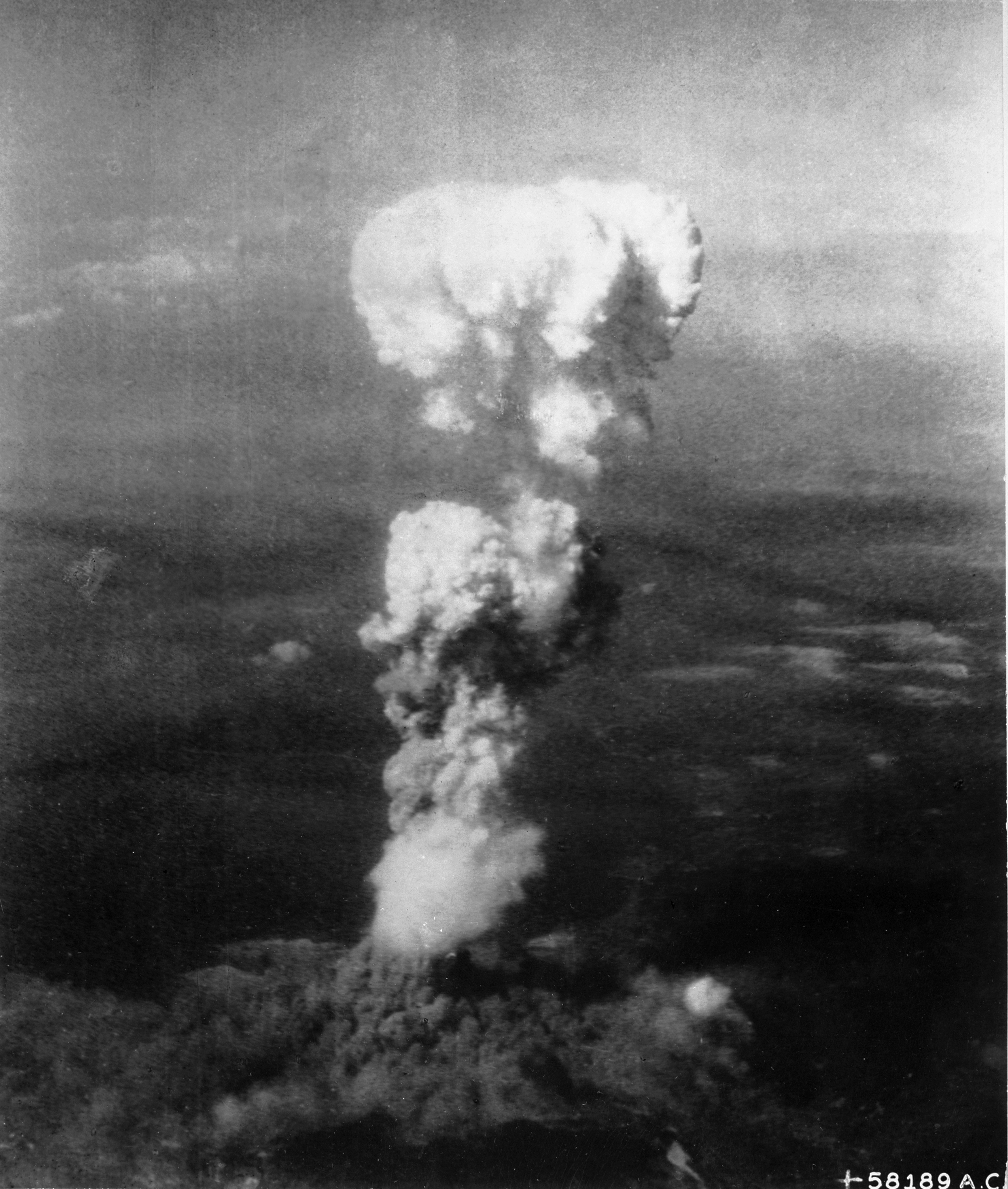
This must be the summer of rediscovering classic documentaries. The news has been considering the anniversary of the bombing of Hiroshima near the end of the Second World War. As you know, what makes it significance was this city was the first to be attacked by a nuclear weapon. The information is known, the bomber under Captain Paul Tibbets, piloting the bomber Enola Gay flew quietly over the city and dropped the bomb. The city became the first to be nuked.
What has been interesting is that there is discussion whether or not the bombing was necessary or was it simply done because the US had this weapon and it might have been more a warning to the Soviet Union rather then a means of bringing Japan to surrender. From what I read, there was never a thought Japan would surrender, or was on the verge of surrendering. The Japanese Government had rejected the Potsdam Declaration, which called for the Unconditional Surrender of Japan.
This has lead to the question, was the US right to begin the Nuclear Age against Japan. Certainly there had been warning about something horrible. Was the US moral in doing so? I thought about a comment I heard in the Documentary "War" by Gwynne Dyer. I did a search of YouTube and found the clip:
The comment by Sir Arthur "Bomber" Harris was is there anything moral about war? Now directly this had to do with the policy of Bomber Command to engage in attacking the cities of the enemy to not only destroy their war industry but to attack and to terrorize the civilian population. The documentary, in the first episode, considers the march towards total war. Mr. Dyer discusses how that at first war was fought by small armies for a couple of days during a year and really didn't effect the nation as a whole. It was only when nations became industrialized and could turn war into an exercise of industrialization and mass production that the march towards total war happened. Now, all of the nation was involved in war, not just the armies but the civilians who worked in the war industry.
I'm just showing these two clips, it would be worth everybody's time to watch the entire episode. Mr. Dyer makes note of the fact that the 20th century happened in 1915 when a Zeppelin crossed the English Channel and dropped a few bombs in London. Now all became the target. As well, all became a legitimate target.
What all this has to do with Hiroshima? Mr. Dyer talks about the need for the theorists of Air War to find a way to destroy the cities of the enemy that is cost effective. Up to Hiroshima, the classic way of attacking a city was to send hundreds of bombers with hundreds if not thousands of crews dropping tens of thousands of bombs. All this cost a lot of money. So there had to be a method that would do the same amount of destruction at only a portion of the cost. I'm not kidding, you can listen. I think this is why before the talk about Hiroshima takes place after a discussion of the bombing of Hamburg.
The result of the bombing was:
Operation Gomorrah caused at least 50,000 deaths, and left over a million German civilians homeless. Approximately 3,000 aircraft were deployed, 9,000 tons of bombs were dropped, and over 250,000 homes and houses were destroyed
Compares this to Hiroshima:
70,000–80,000 people, or some 30%[33] of the population of Hiroshima were killed immediately, and another 70,000 injured.[34] Over 90% of the doctors and 93% of the nurses in Hiroshima were killed or injured—most had been in the downtown area which received the greatest damage.
One plane, one crew, one bomb, yes it cost 2Billion Dollars to develop, but after that I suspect the cost comparison is quite reasonable. It's funny when it becomes a spreadsheet, doesn't it.
What we need to do is not consider who's at fault for Hiroshima, but to consider what we need to do as humans. I think this song says it all:
Too much of our history is already dedicated to war and conflict. How about working so we will never have to study war no more.

No comments:
Post a Comment